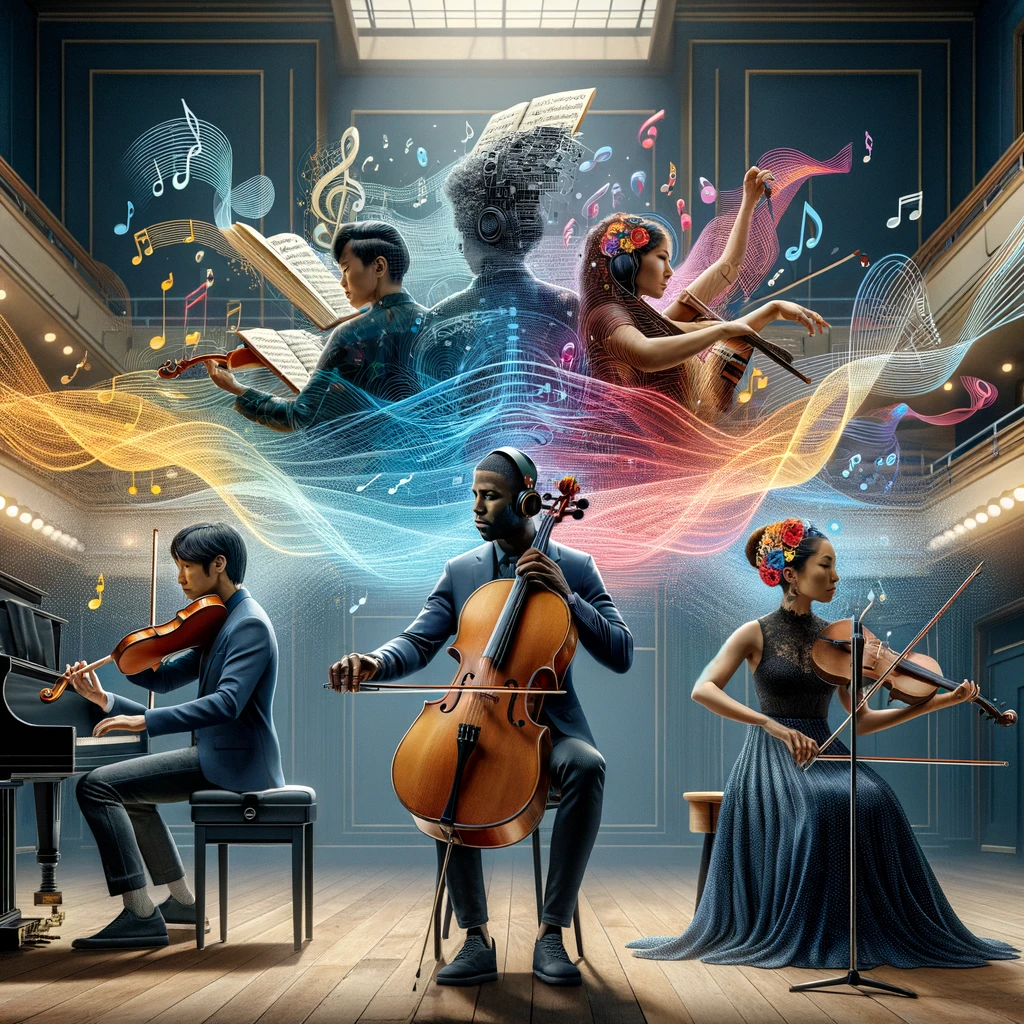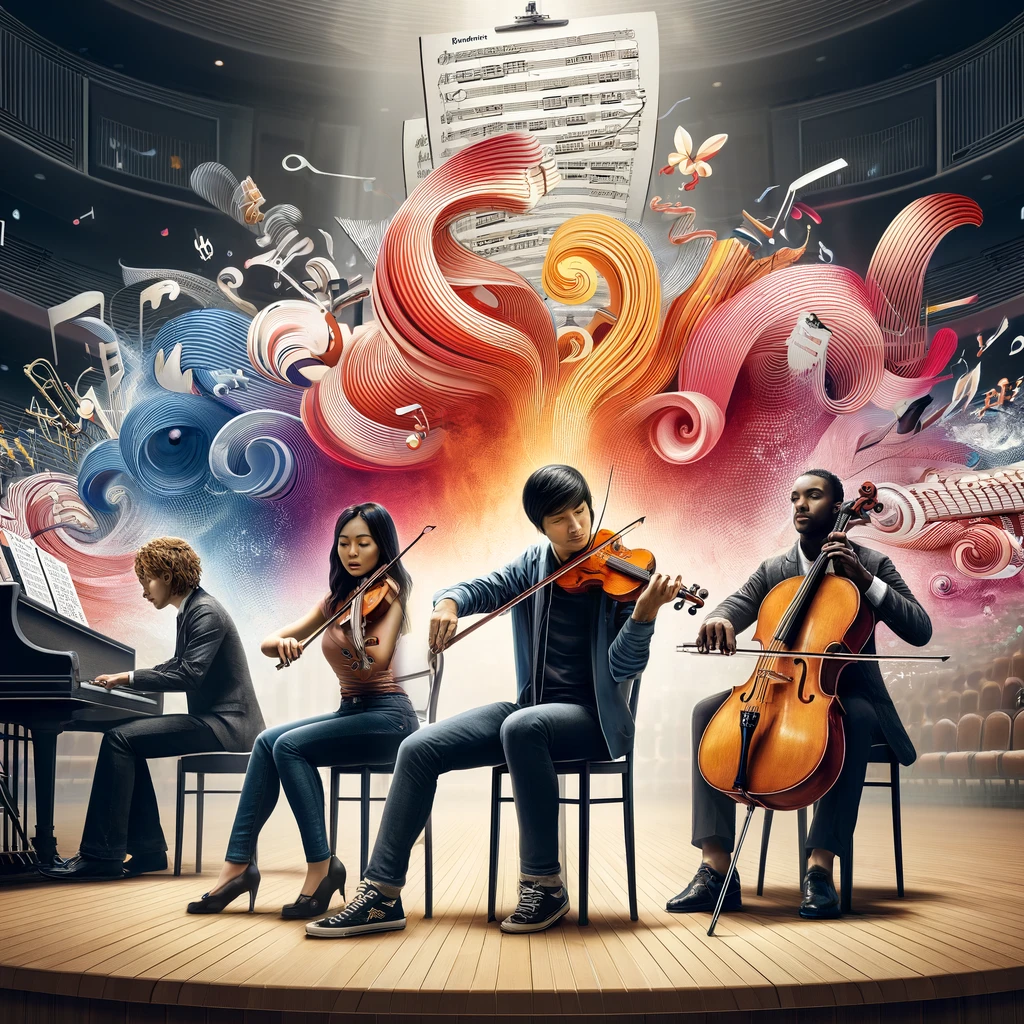
Beethoven’s Legacy in Modern Music Interpretations
Ludwig van Beethoven, a name synonymous with musical genius, has left an indelible mark on the world of classical music. His compositions are not just relics of the past but continue to be dynamic blueprints that influence contemporary artists across various genres. This exploration sheds light on how today’s musicians interpret Beethoven’s works, ensuring his legacy resonates with new generations.
Beethoven’s Universal Appeal
Beethoven’s music, known for its emotional depth and structural complexity, appeals to musicians for its timeless qualities. From symphonies to sonatas, his works challenge performers and composers to delve deep into their own creative spirits. Musicians often cite his ability to convey profound human emotions—from joy to despair, tranquility to turbulence—as a key influence in their work. This emotional range makes his music highly adaptable to modern contexts, whether in classical performance, film scores, or even pop music arrangements.
Cross-Genre Inspirations
Beethoven’s influence transcends classical music, seeping into jazz, rock, and even pop genres. Jazz musicians admire his improvisational prowess, particularly evident in his piano sonatas, which mirror the improvisational nature of jazz. Legendary figures like Duke Ellington and Miles Davis have been known to incorporate motifs from Beethoven’s compositions into their performances, using them as a foundation for improvisation and exploration.
In the realm of rock, bands like The Beatles and The Rolling Stones have acknowledged Beethoven’s impact on their music structure and thematic development. The Beatles’ “Because,” for instance, is directly inspired by the chord progression of Beethoven’s “Moonlight Sonata,” showcasing how classical elements can seamlessly integrate into rock music.
Pop artists also draw from Beethoven’s repertoire, often sampling his themes to add a touch of sophistication or emotional gravity to their tracks. Modern electronic and symphonic metal bands, too, find his dramatic crescendos and intense rhythms a perfect match for their epic compositions.
Educational Influence
Beyond direct musical adaptation, Beethoven’s methodologies and approaches to music composition are taught in conservatories around the world. His methods of thematic development, modulation, and orchestration are critical components of musical education, offering a foundation upon which modern musicians build their skills. As educators integrate Beethoven’s techniques into teaching, students of all musical disciplines learn to appreciate and apply classical principles to their own creative processes.
The Digital Age and Beethoven
In the digital era, access to Beethoven’s works has expanded through platforms like YouTube, Spotify, and other music streaming services, allowing musicians to study and reinterpret his compositions more freely. This easy access also fosters a community of musicians who collaborate across continents, bringing diverse cultural perspectives to Beethoven’s music. Remixes and covers are popular, showcasing his works juxtaposed with modern electronic music, or transformed by digital effects and production techniques that Beethoven himself could never have imagined.
Live Performances and Experimental Interpretations
Live music performances often feature experimental interpretations of Beethoven’s works. Orchestras and solo artists alike might blend traditional instruments with modern technology to create unique renditions. For example, using electric violins in a symphony or incorporating digital soundscapes to enhance the acoustic qualities of the music. These performances not only honor Beethoven’s original compositions but also push the boundaries of how classical music can be experienced in the 21st century.
Ludwig van Beethoven’s influence on modern music is as vibrant as ever. His works serve as a canvas for contemporary musicians to express their artistic voices. Whether through direct adaptation, inspiration from his innovative techniques, or educational influence, Beethoven continues to be a towering figure in music. His legacy not only endures but evolves, mirroring the unending quest for expression and connection in human creativity.

The Composer as a Cultural Icon
Beethoven’s status as a cultural icon further magnifies his influence on today’s musicians. His life story—marked by adversity, including his well-documented struggle with deafness—resonates with artists facing their own challenges. This narrative of overcoming hardships fuels the emotional depth found in covers and reinterpretations of his work. For example, contemporary musicians often relate to the sense of isolation and perseverance evident in Beethoven’s late works, channeling these feelings into their own music to connect with audiences on a profound level.
Innovation Through Technology
Technological advancements have also played a significant role in how modern musicians interpret Beethoven’s music. With the advent of sophisticated software and sound design tools, composers and producers can experiment with Beethoven’s scores in ways that were unimaginable in his time. Musicians can manipulate classical recordings, merge them with digital elements, or completely transform them while retaining the emotional and thematic cores of Beethoven’s originals. This technological interplay not only brings a new dimension to his music but also attracts a younger, tech-savvy audience.
Film and Television Scores
Another significant area where Beethoven’s influence is evident is in film and television scoring. Composers for visual media frequently draw upon Beethoven’s dramatic sensibilities to enhance the narrative power of their scores. The use of Beethoven’s motifs in cinema—from tense, suspenseful sequences to moments of triumph—is testament to his mastery of conveying emotion through music. Film composers often cite Beethoven’s ability to build tension and release it, harnessing these techniques to drive the emotional arc of a story.
Global Reach and Diverse Interpretations
Beethoven’s music has a global reach, inspiring musicians from different cultures to blend his works with local musical traditions. For instance, in Japan, performers have combined Beethoven’s compositions with traditional instruments like the koto and shakuhachi, creating a fusion that respects both the Western classical tradition and Japanese musical heritage. Similarly, in African countries, musicians have juxtaposed Beethoven’s melodies with African rhythms and instruments, producing vibrant new works that celebrate a cross-cultural musical dialogue.
Collaborative Projects and Festivals
Beethoven’s compositions are frequently featured in collaborative projects and music festivals around the world, which celebrate his legacy while promoting innovation in music. These events often feature interdisciplinary performances, combining music with dance, theater, and visual arts, pushing the boundaries of how classical music can be interpreted and experienced. Such festivals not only honor Beethoven’s contributions but also encourage musicians to explore new creative territories using his works as a starting point.
Sustainability and Social Change
In the realm of social change and sustainability, Beethoven’s music has served as a powerful soundtrack for advocacy and awareness campaigns. For example, the emotive quality of his “Symphony No. 9” has been used in concerts and events aimed at promoting peace and unity. Musicians and organizers choose Beethoven’s works to underscore the universal message of hope and resilience, making classical music a tool for social impact.
Conclusion
Ludwig van Beethoven remains a pivotal figure in music, not just as a composer of the past but as a continual source of inspiration and innovation. His influence spans genres, cultures, and media, affirming that his work is not confined to classical music enthusiasts but is a universal heritage that resonates with diverse audiences. As musicians today reinterpret his compositions, they keep his spirit alive—demonstrating that Beethoven’s music is truly timeless, transcending the limitations of period, style, and geography.
Today’s musicians are not just performers of Beethoven’s works but are interpreters who bridge the past with the future, keeping the conversation with this great composer alive and vibrant. Through their creative endeavors, Beethoven’s legacy continues to evolve, inspiring new generations to explore the depths of musical expression and the breadth of human emotion.